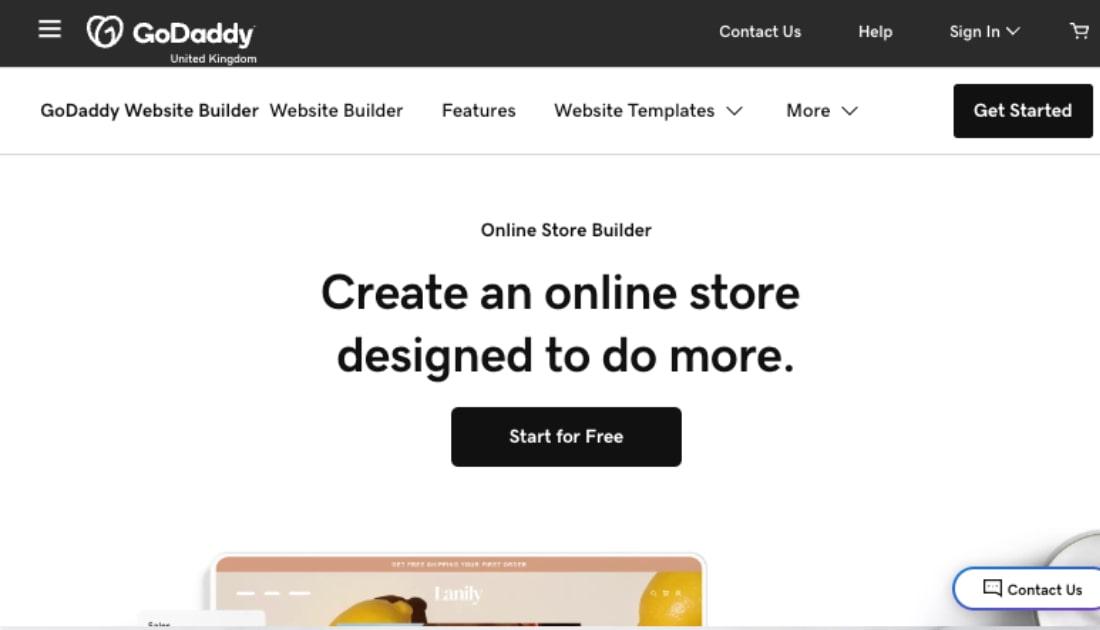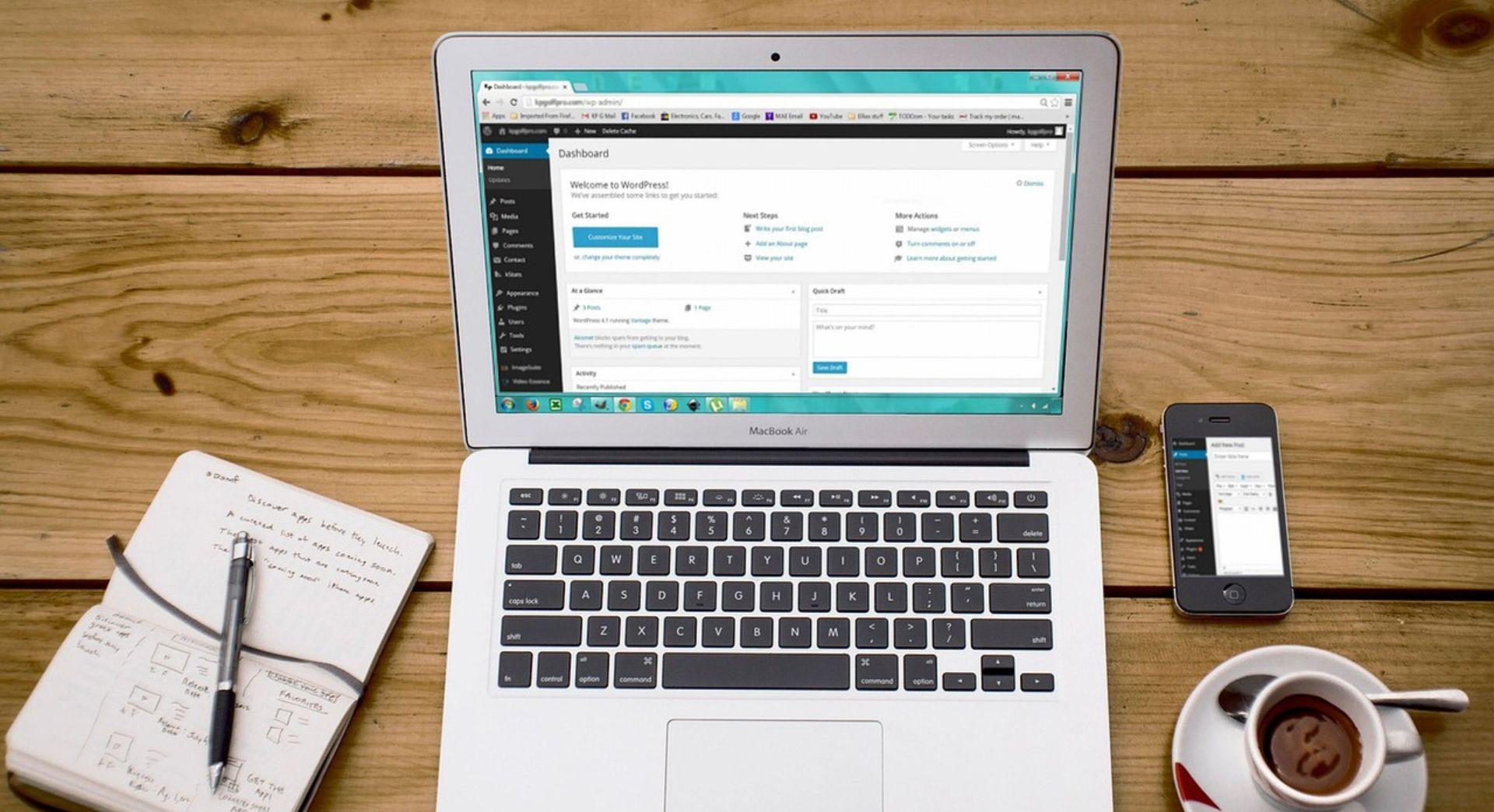Looking to sell online? With so many online selling platforms to choose from, it can feel confusing.
In this guide we'll look at the key differences between major selling platforms and explain why each one might or might not be suitable for your business.
Let's get started.
Online selling platform 1: Your own website
If you're looking to sell online, it makes sense to have your own website.
Why? Well, perhaps most important if you have your own website you're totally in control of the way you brand and market your business, plus you'll get all the benefits of marketing your business.
If you're using a third-party selling platform (more on which later), then you have less control. On top of that if you market your products on third-party sites only then you'll struggle to build a brand that can stand on its own two feet.
So no matter what you sell, you should invest in your own website, and if you're selling online you should make sure it's an ecommerce website.
For most businesses, a tool like GoDaddy's Online Store should provide everything you need to sell online - whether you're selling a product all over the world, or you're a restaurant looking to offer local delivery.
If you've got a high level of technical skills then you can think about using a platform like WordPress or Magento to build your site - this is a good idea if you're thinking of setting up a very large store..
And if you need a very large store and don't have technical skills, you can hire a web designer (but be prepared to pay a premium).
You can learn how much an ecommerce website should cost in this guide, while this guide explains how to set up an online shop.
Online selling platform 2: Amazon
Amazon is the world's biggest online retailer, so it makes sense to consider it if you're looking to sell online.
The biggest selling point of Amazon is the huge audience it commands. But it's a highly competitive marketplace and that can make doing business on Amazon challenging. Remember, people won't just see your products when they search on Amazon, they'll see your rival's products too.
If you're serious about selling on Amazon, you'll need to put time and effort into optimizing your product listings, understanding what fees you'll be paying and how you'll have to price your products so they're both profitable and competitively priced.
You should also think about how you can build a brand away from Amazon so you're not entirely reliant on one platform. Why? Because if you rely on one selling platform and you're no longer able to sell on that platform for some reason then your business will be in trouble.
You can learn how to start selling on Amazon in this guide.
Online selling platform 3: eBay
If you use GoDaddy's Online Store you can add your products to eBay with just a few clicks. That means you can manage your website and eBay inventory for one control panel. (An eBay seller account is required and eBay fees apply.)
Sometimes incorrectly viewed as a platform for people looking to sell a handful of items, eBay is in fact an ecommerce giant comparable to Amazon.
Many successful businesses have used eBay as their launch pad, selling new as well as used items.
However, the drawbacks for eBay are much the same as they are for Amazon - you'll be entering a crowded marketplace, you'll have to pay fees when you sell products and your rivals will be listed right alongside you.
As with Amazon, if you do use eBay for your business you should look at ways you can build a brand away from the site, so that you're not just relying on one platform.
You can learn about getting started with eBay selling as a business in this guide.
Online selling platform 4: Facebook Marketplace
Facebook Marketplace is another platform that is commonly associated with individuals selling second hand items, but it's there to be used by businesses too.
It has the same drawbacks as other major third-party selling platforms, but it also has the major advantage of being directly linked to Facebook's ad platform.
As Facebook offers highly specific ad targeting, this means Facebook Marketplace should be of particular interest to people selling a product that serves the need of a particular group of people.
You can learn more about using Facebook Marketplace in this guide.
Online selling platform 5: Etsy
Esty is the dominant online marketplace for handmade and vintage items. Its biggest advantage is in the large audience it attracts.
And although your work will be featured alongside those of other sellers, the fact you're likely to be selling something unique gives you more of a chance to stand out than the average Amazon or eBay seller has.
You will, however, need to pay fees when selling items on Etsy, which will take a cut out of your profits.
You should also consider ways to build your brand away from Etsy, so you aren't reliant on the platform for all of your income.
This guide explains how to get started with Etsy.
Which online selling platform is right for me?
Picking an online selling platform can feel confusing, but really if you're confident in your product and your ability to compete with your rival sellers then there's no reason to limit yourself to just one platform.
However, here are some questions you should consider before signing up for a particular platform:
- Am I able to sell a product profitably on this platform taking into account sales fees and marketing costs?
- Will I be able to compete with rival sellers on price? (Remember that larger sellers may be willing to sell a product at a loss for a period in order to dominate the market.)
- Am I able to hold stock in sufficiently large numbers? (If you expect to sell large numbers of a particular product, you may need to factor in warehousing costs.)
- How will I handle order fulfilment? (This will be easy if you're only handling a few orders every few days, but if you're selling at a large volume you may need to outsource order fulfilment, which will be an added cost.)
Answering these questions will help you understand if a particular selling platform is right for you.
Summing up
Although being on the right online selling platforms can boost any business, don't forget that if you really want to build your own brand you'll need a website to provide you with the right foundation.
If you don't build a brand around your website and just focus on selling on third-party platform then your success will always lie in someone else's hands.
But by combining the selling platforms that work best for you, along with a website where you're in control of your brand you'll experience the best of both worlds.







